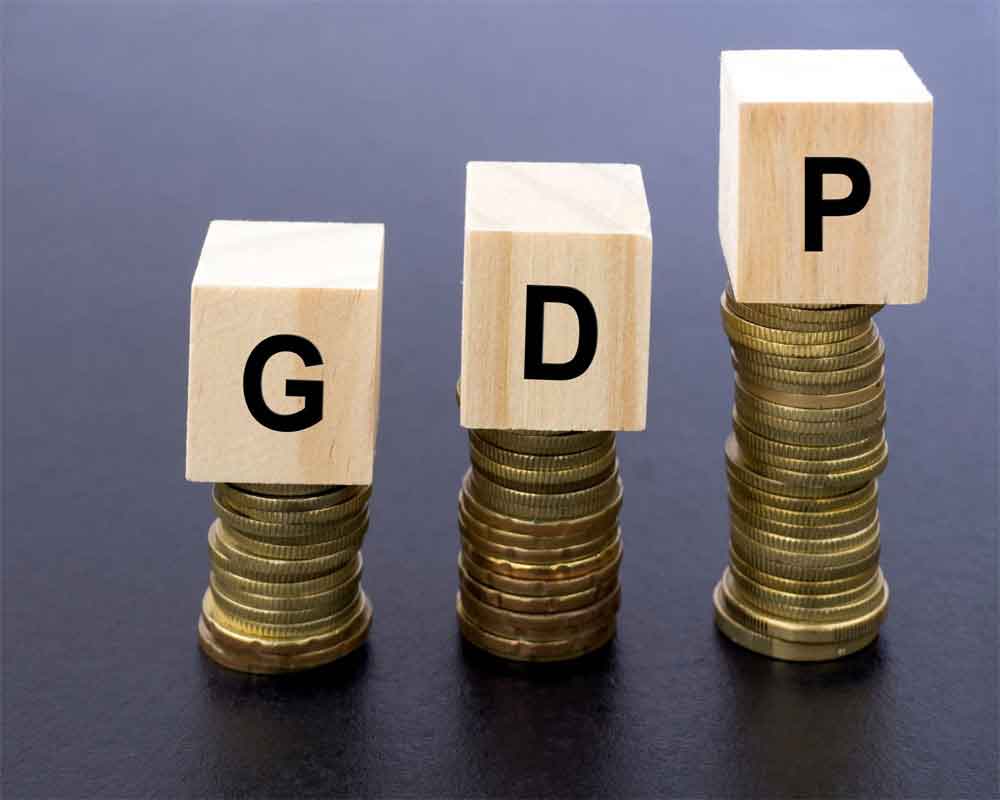New Delhi: International agency OECD Thursday reported that India’s FY19-20 GDP growth would be 5.8 per cent.
Recently the official GDP numbers for the Q2 quarter came out to be 4.5 per cent and this is the first international growth forecast after that. The Organisation for Economic Co-operation and Development (OECD) is an intergovernmental economic organisation with 36 member countries founded in 1961 to stimulate economic progress and world trade. The Survey sees India’s GDP growth recovering to 6.2 per cent in 2020 and 6.4 per cent in 2021 after dipping to 5.8 per cent in 2019 following several years of robust growth.
“Restoring growth to the higher levels is needed to provide ample jobs and ease inequality will require accelerating the pace of structural reforms to revive investment and exports”, OECD said in the survey.
India has ramped up its participation in international trade since slashing tariffs in the 1990s. Its share of global goods and services exports reached 2.1 per cent in 2018, up from 0.5 per cent in the early 1990s, thanks to a strong performance in sectors like information technology and pharmaceuticals.
Addressing remaining infrastructure bottlenecks by modernising ports and adding roads will be key to boosting India’s competitiveness. Reducing restrictions to services trade imposed by trading partners and by India on imports would further boost trade in services, also giving a lift to manufacturing and the general economy.
OECD estimates suggest India would be the biggest beneficiary of a multilateral cut in services trade restrictions. Even without a multilateral agreement, moving alone to overhaul regulations would have a positive impact, OECD said.
While many millions of Indians have been lifted out of poverty in recent y ears, too many have no formal employment benefits and little access to finance. Doing more to simplify complex labour laws – many of which discourage hiring by becoming binding as firms grow above stated thresholds “would help raise the share of quality jobs demanded by a fast-growing and well-educated youth population in a country where the vast majority of employment is informal,” the survey noted.
The 2019 edition of OECD Economic Surveys: India report has projected India’s gross domestic product (GDP) to grow at 5.8 per cent for the financial year 2019-20. “Growth has slowed since mid-2018, from a hefty pace, reflecting the sharp deceleration in private consumption,” the report underlined.
Changes in insurance regulations and liquidity stress in the non-banking financial companies (NBFCs) have affected car sales while the shutdown of one major airline and volatility in fuel prices have weighed on consumer confidence, the survey said.
The report, despite forecasting muted GDP growth for India, says that the country remains a growth champion despite recent slowdown and going forward, growth is projected to recover. For 2020, the survey projects India’s GDP growth to be 6.2 per cent and 6.4 per cent in 2021.
“The recent loosening in monetary policy, combined with fiscal rectitude, will lower the cost of borrowing for the corporate sector,” the report said. It also noted that the ongoing resolution of distressed assets of non-financial corporates under the Insolvency and Bankruptcy Code is expected to unlock resources for new investment projects.
The government needs to raise more tax revenue by removing the tax expenditures that mostly benefit the rich, freeze nominal personal income tax brackets, and improve compliance in order to have better macro-economic policies, the survey suggested.
The survey has found that more personal income tax revenue can be raised to finance investment in infrastructure. “There is scope to… higher public spending on health and education and to adhere to the set target on public debt to GDP (gross domestic product),” the report says.
The report said that there is scope to raise more and better tax revenue to reduce public debt and fund large infrastructure needs. “Tax collection remains low, partly reflecting India’s low-income level, its high degree of informality and narrow base due to a wide array of tax breaks,” the report said.
It also said that several reforms are contributing to improve tax compliance, especially the implementation of the Goods and Services Tax (GST). “Overall, the number of companies and individuals filing tax returns increased by 22 per cent in FY 2017-18 and income tax revenue increased by 19 per cent,” the report said.
The survey recommends the creation of an independent fiscal council to govern the transparency of off-budget transactions and contingent liabilities.
“Government deficit to GDP has declined but various public spending programmes are partly financed off-budget. Contingent liabilities are looming,” the report has found.
The survey says that income has increased in recent years but private investment has lagged behind and has even actively slowed. “Growth has been driven mainly by consumption. Industrial production and corporate investment have yet to adjust fully to measures to improve the ease of doing business and banks’ ability to lend,” the report says.
(IANS)
